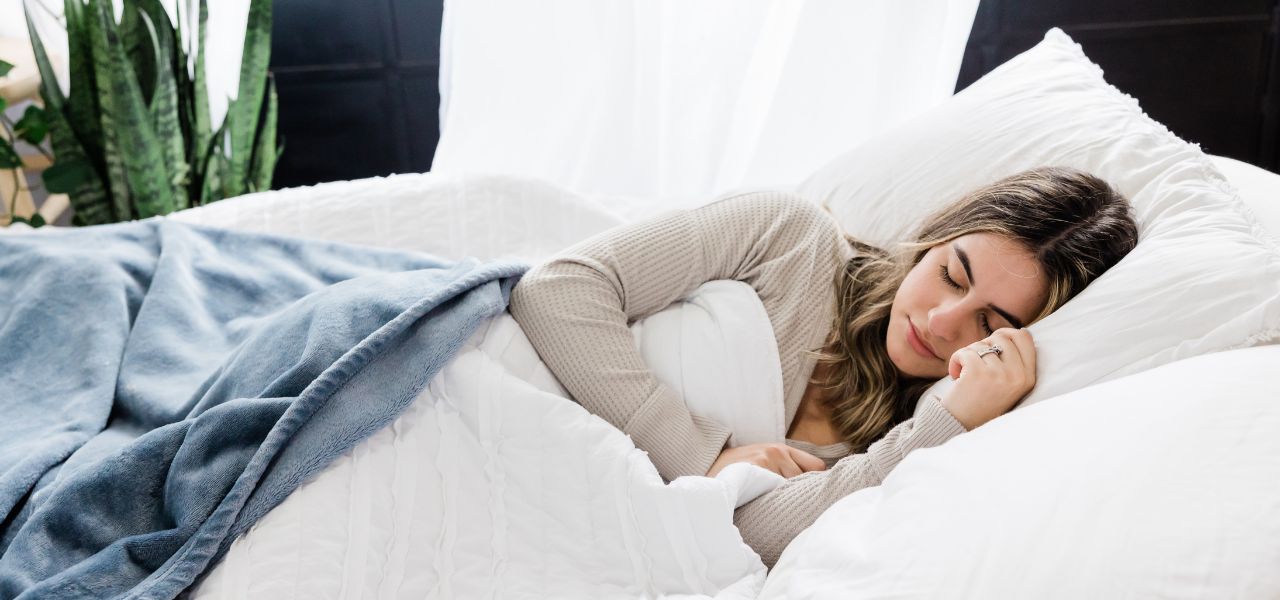What a Lack of Sleep Does to Your Body and Health
We all know how awful it feels to be sleep-deprived. But beyond just feeling grumpy and tired, a lack of sleep can seriously harm our mood, health, and overall quality of life.
According to Dr Matthew Walker, a leading sleep researcher:
“Routinely sleeping less than six hours a night weakens your immune system, substantially increasing your risk of certain forms of cancer. Insufficient sleep appears to be a key lifestyle factor linked to your risk of developing Alzheimer’s disease. Inadequate sleep—even moderate reductions for just one week—disrupts blood sugar levels so profoundly that you would be classified as pre-diabetic. Short sleeping increases the likelihood of your coronary arteries becoming blocked and brittle, setting you on a path toward cardiovascular disease, stroke, and congestive heart failure.”
How Lack of Sleep Affects Your Daily Life

Sleep disruption further contributes to all major psychiatric conditions, including depression, anxiety, and suicidality.
Not getting enough sleep can have serious consequences, impacting everything from your driving and decision-making abilities to your weight, immune system, and even fertility. Most adults need 7-9 hours of sleep, but it’s crucial to listen to your body and get the rest you need to avoid these negative effects.
Scientific studies highlight the importance of sleep for both physical and emotional health. Sleep deprivation has been linked to a range of negative outcomes, from impaired driving skills and decision-making to increased risks of obesity, weakened immunity, and reduced fertility. Research also shows that sleep is vital in regulating our emotions and helping us cope with stress. Therefore, it’s crucial to prioritize getting enough sleep.
Charlotte Brontë’s prophetic wisdom that “a ruffled mind makes a restless pillow” is ever more relevant in today’s world, where our minds struggle with multitasking and information overload.
Sleep Preferences: Morning Larks vs. Night Owls

It’s common to hear people described as “morning larks” or “night owls” based on their natural sleep preferences. Unlike larks who rise early with ease, night owls struggle to fall asleep at conventional times, often drifting off only in the wee hours. This makes early mornings a struggle, as their brains, particularly the prefrontal cortex responsible for complex thinking and emotional regulation, remain in a sleep-like state. It’s like a cold engine that takes time to warm up and function efficiently.
Unfortunately, society often misjudges night owls, labeling them as lazy for waking later due to their biologically delayed sleep cycle. This preference is often mistaken for a choice, but it’s actually hardwired in their DNA.
Furthermore, the typical work schedule, with its early start times, favors larks and puts owls at a disadvantage. This forces owls into an unnatural rhythm, hindering their morning productivity and preventing them from reaching their full potential later in the day when they naturally function best. This chronic sleep deprivation can lead to serious health consequences for owls, including increased risks of mental and physical health problems.
Sleep: The Ultimate Life-Changing Habit
Researchers have found something incredible that can transform your life! It’s not a magic pill, but it has amazing benefits:
- Live longer and healthier: It reduces your risk of serious illnesses like heart disease, stroke, diabetes, and even cancer.
- Boost your brainpower: Enjoy sharper memory, increased creativity, and improved mood.
- Look and feel great: It can help you maintain a healthy weight, enhance your appearance, and increase your happiness.
- Stronger defenses: It strengthens your immune system, helping you fight off common illnesses.
This discovery is backed by science and readily available. Intrigued? No need to go to a doctor to find out about this discovery. All you have to do is start enjoying 7-9 hours of sleep every day.
Frequently Asked Questions (FAQs)
Sleep deprivation can weaken the immune system, increase the risk of chronic illnesses like heart disease, diabetes, and cancer, and disrupt blood sugar levels, potentially leading to pre-diabetes.
Sleep loss is linked to conditions such as anxiety, depression, and suicidality. It also impairs emotional regulation, making it harder to cope with stress.
Most adults need 7–9 hours of sleep each night to function optimally and maintain good health.
Morning larks naturally wake up early and are most productive in the morning, while night owls prefer staying up late and often struggle with early wake-ups due to their biological rhythms.
Yes, sleep deprivation reduces concentration and decision-making abilities, increasing the likelihood of accidents, especially while driving.



